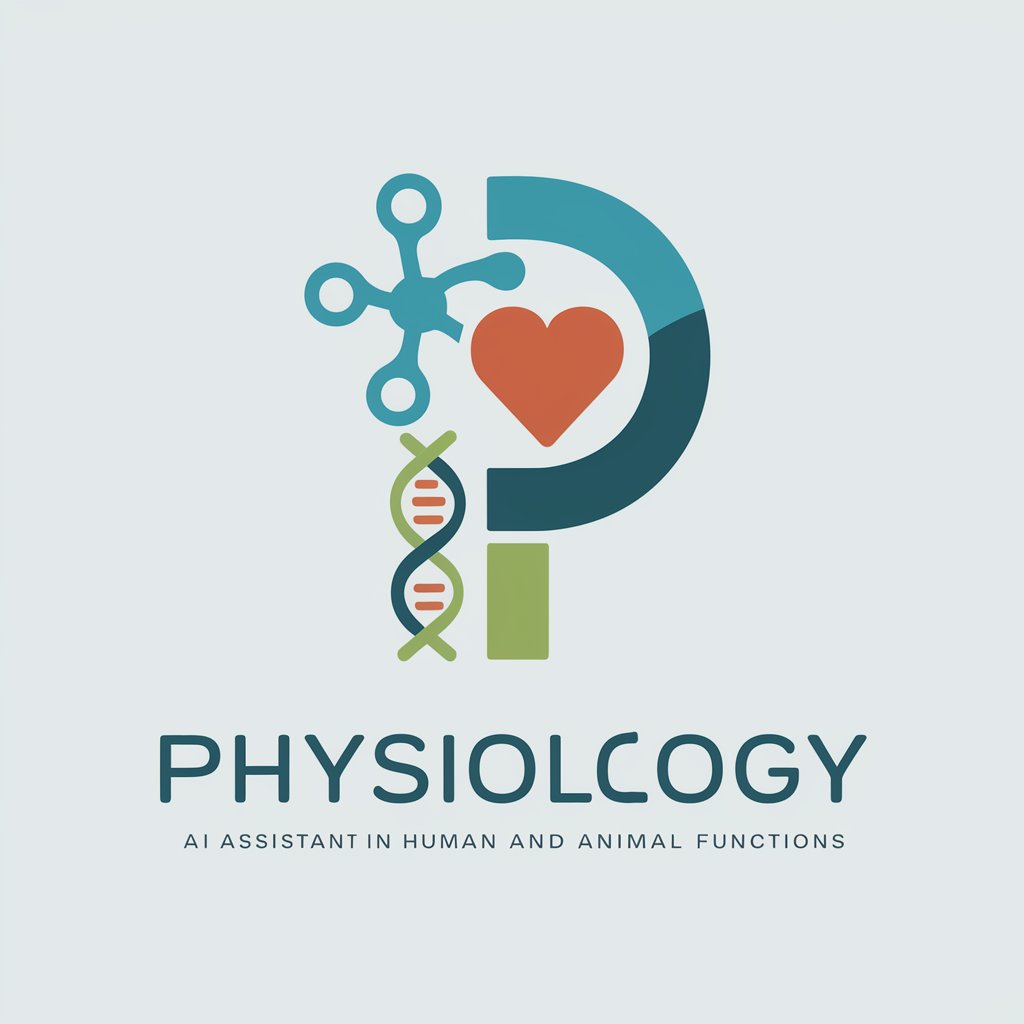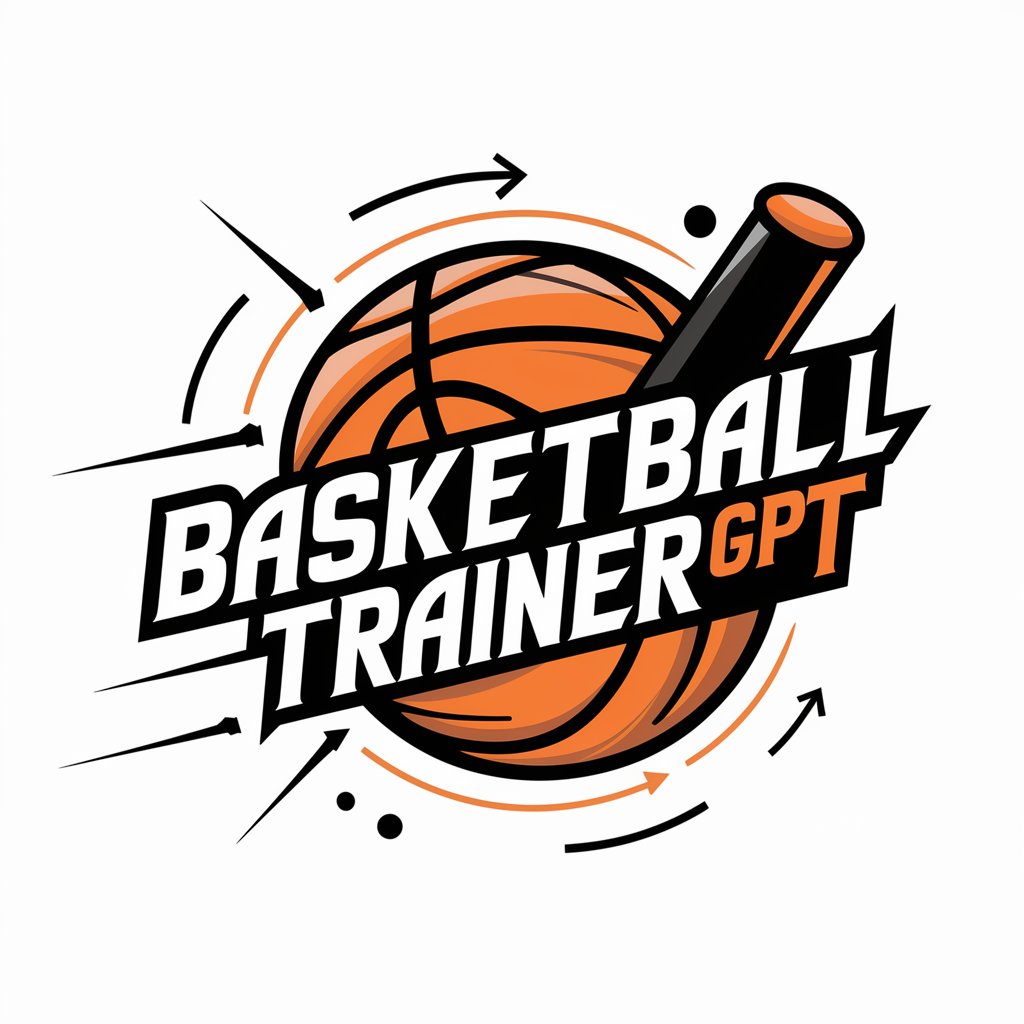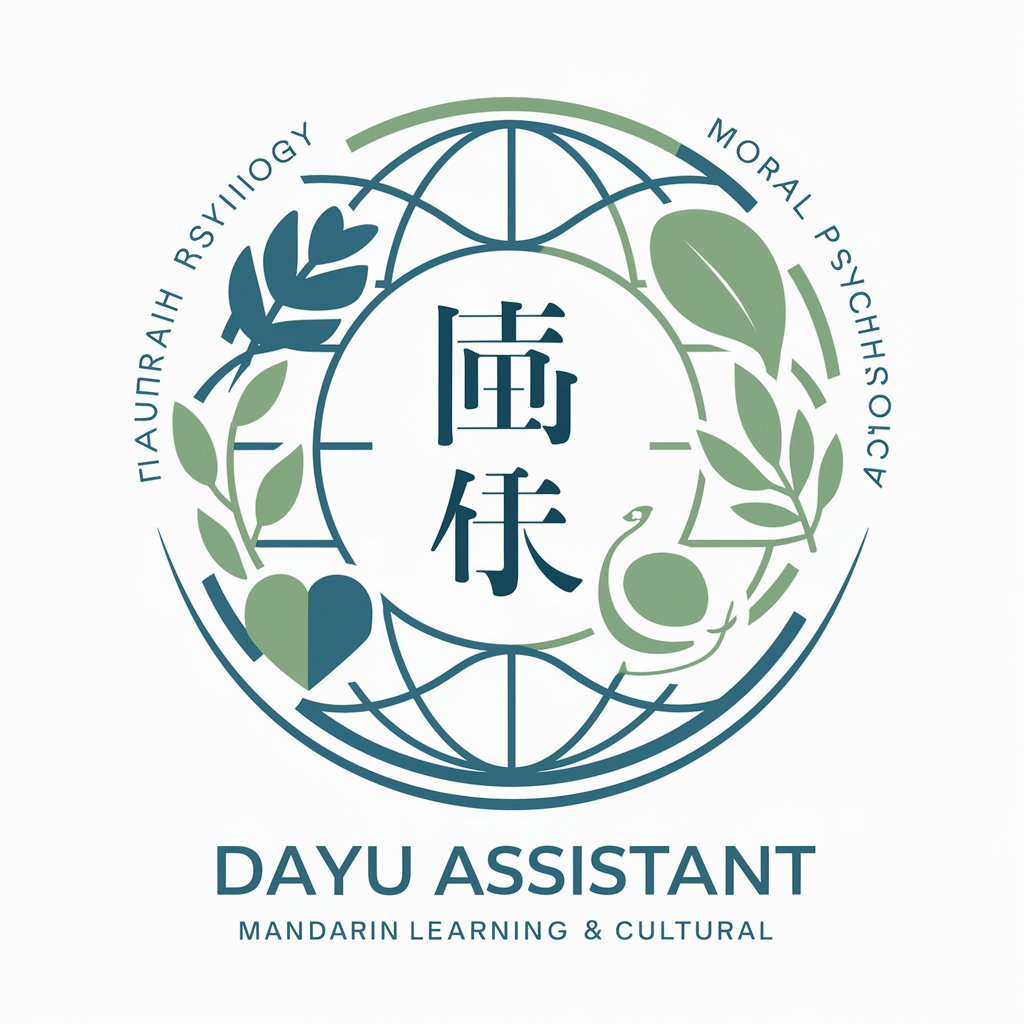Physiology - Physiology Insights Platform

Hello! I'm here to help you understand the functions of the body.
Unlocking the secrets of life with AI
Explain the process of muscle contraction in detail.
Describe the function of the respiratory system.
What role do enzymes play in digestion?
How does the circulatory system work?
Get Embed Code
Understanding Physiology
Physiology, at its core, is the scientific study of the functions and mechanisms which work within a living system. As a field of biology, it focuses on how organisms, organ systems, organs, cells, and biomolecules carry out the chemical and physical functions that exist in a living system. The design purpose of studying physiology is to understand the principles and mechanisms of life processes, from the molecular basis of cell function to the whole integrated behavior of the entire body. An example of physiology in action is the study of the cardiovascular system, not just looking at the heart's structure but understanding how it pumps blood, how blood vessels regulate blood flow, and how these processes adapt to the needs of the body during different activities like exercise or rest. Powered by ChatGPT-4o。

Main Functions of Physiology
Explaining Biological Processes
Example
Illustrating how neurons communicate can exemplify this function. Neurons transmit signals via synapses using neurotransmitters. This process is fundamental for functions ranging from muscle contraction to complex behaviors in the brain.
Scenario
In an educational setting, a teacher could use this explanation to help students understand the basis of human behavior, mental health disorders, and the action of drugs on the nervous system.
Analyzing Homeostasis
Example
Homeostasis refers to the body's ability to maintain a stable internal environment despite changes externally. An example is the regulation of body temperature.
Scenario
This function is crucial in medical diagnostics, where understanding deviations from homeostasis can indicate disease. For instance, persistent high blood sugar levels can signal diabetes.
Researching Disease Mechanisms
Example
Studying the physiological changes in cells and tissues during disease progression, such as the inflammatory response in autoimmune diseases.
Scenario
Researchers can use this information to develop targeted therapies, improving patient outcomes. This is particularly relevant in the development of new treatments for chronic conditions.
Ideal Users of Physiology Services
Students and Educators
Individuals in academic settings, such as students learning about biology, medicine, or related fields, and educators teaching these subjects. They benefit from understanding physiological concepts to enhance learning and teaching methodologies.
Healthcare Professionals
Doctors, nurses, and other medical practitioners use knowledge of physiology to diagnose, treat, and manage diseases. Understanding physiological mechanisms is fundamental to providing effective patient care.
Researchers
Scientists studying life sciences, including biology, biochemistry, and pharmacology, rely on physiological principles to explore new hypotheses, develop drugs, and advance medical knowledge.

How to Use Physiology
Start Your Journey
Begin by accessing a platform offering Physiology insights, such as visiting a specialized educational website offering a free trial, no login or premium subscription required.
Identify Your Needs
Determine what you want to learn or understand about physiology, whether it's for academic purposes, personal interest, or professional development.
Engage with Content
Utilize the tool to explore topics or questions you have about human or animal physiology by entering specific queries.
Apply What You Learn
Integrate the knowledge gained into your studies, research, or in understanding health and bodily functions more deeply.
Review and Reflect
Regularly revisit the concepts learned to reinforce understanding and apply them in varied contexts or discussions.
Try other advanced and practical GPTs
Soli Deo Gloria
Empower your theology with AI

MODERN GENTLEMAN
Elevate Your Game with AI-Powered Mentorship

Basketball Trainer
Elevate Your Game with AI Coaching

Gestor Experto To Closer
Empowering Leaders and Closers with AI

Wolfpack
Empower Your Trading with AI-Enhanced Insights

LOU
Empower Your Work with AI

Look as a hamster
Transforming moments into hamster magic.

大渔小助手
Empowering Learning with AI-driven Insights

Détecteur de race de chien
Discover Your Dog's Breed with AI

佐藤秘書 日本語版
Empowering Your Wellness Journey with AI

Wanderlust of London - Unlocking Hidden Gems
Uncover London's Hidden Treasures with AI

Antiques
Empowering Antique Enthusiasts with AI

Physiology Q&A
What is physiology?
Physiology is the scientific study of the functions and mechanisms which work within a living system. It covers how organisms, organ systems, organs, cells, and biomolecules carry out the chemical or physical functions that exist in a living system.
How does understanding physiology help in everyday life?
Understanding physiology can help individuals make informed decisions about their health and lifestyle, improve athletic performance, manage chronic conditions, and understand how the body responds to changes in the environment.
Can Physiology help with academic research?
Yes, it provides a foundational understanding for students and researchers in fields like medicine, sports science, and biology, enabling them to explore and investigate life sciences with a deeper insight into how living organisms function.
What are the main systems studied in physiology?
The main systems include the cardiovascular, respiratory, nervous, immune, digestive, excretory, endocrine, muscular, and skeletal systems. Each plays a crucial role in maintaining the body's homeostasis.
How can technology enhance learning in physiology?
Technology, such as AI-powered tools, can offer interactive learning experiences, provide access to vast databases of research, and enable simulations that help in understanding complex physiological processes in a dynamic and engaging way.
